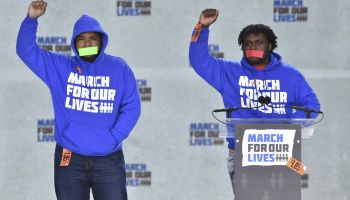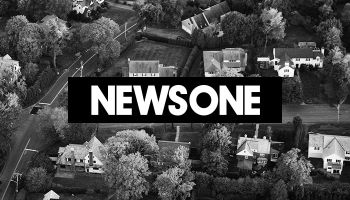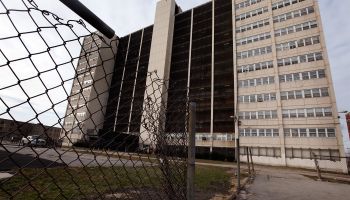In the 200 plus years since its first inception, the United States census has often provided a racist, biased and erroneous count of people of color in America. If care is not taken, the 2020 Census is gearing up to be much of the same.
As a constitutionally mandated and protected act, the decennial census ought to be carried out with proper diligence and accuracy, yet for the Black population, it has often been used as a political weapon to further disenfranchise our communities. From being forced to identify as a white man’s commodity, to being counted as only three-fifths of a person, understandably, Black people have had a historical aversion to the census.
However, with the census being a critical tool the government uses to determine the allocation of funds, programs, and the number of representatives each state sends to Congress, Black people and other minorities cannot afford to be undercounted. And, under the anti-immigrant, anti-Black, pro-hate fog that has enshrouded our nation since Trump’s America, the 2020 census is already being positioned to undercount frontline communities. Given today’s political climate, it is imperative that all social justice organizations not only instill within their minority base the need to partake in the census, but also speak out against the many pitfalls facing the upcoming census.
The NAACP has long been vocal about the implications of an ill-prepared census on the African-American population. Last fall, we filed a lawsuit against the U.S. Department of Commerce for its refusal to disclose records on its preparations for the 2020 census. Several factors raised concern regarding just how prepared the Department was to adequately carry out a full and fair election: A Trump imposed hiring freeze, the abrupt resignation of the head of the Census Bureau and a relatively underfunded budget. After our request was sent in June to see documents on the Census Bureau’s plans to mitigate these risks – a request protected by the Freedom of Information Act – an inadequate response, absent in a majority of the NAACP’s requests, was produced in October.
A census underfunded by about $200 million is worrisome, yes, but even more troubling are the questions and methodology being added to the 2020 census. Most obvious is the citizenship question, which the Bureau’s own research shows will lower response rate. Under an administration who’s first edict was to impose a Muslim ban, followed by the rescinding of the Deferred Action for Childhood Arrivals, the termination of Temporary Protected Status for Haitian immigrants and the impending threat of a wall on the southern border, it is irrational to believe most undocumented immigrants – a significant portion of them Black – would dare to willingly admit that they are not U.S. citizens. Many would rather forgo the census altogether. Yet, if they are not counted, there is almost no way they will rightfully be allocated the resources needed to survive. So, to any undocumented immigrant, the 2020 census presents itself as a double-edged sword.
While the Census Bureau’s records of individual responses are private and unable to be accessed or used by other agencies, say for instance ICE, the Immigration and Customs Enforcement, many see all government entities as one and the same, and as distrust in the government continues to rise each day, it becomes more and more likely that the citizenship question will do more harm than good with regard to counting the number of people that reside in this country.
The fear of government is not solely relegated to immigration agencies. Many African-Americans live in urban settings where the cost of living is considerably high and living arrangements are often improvised and unconventional. From New York to San Francisco, garages are turned into apartment studios, and attics and lofts turned to living quarters occupied by multiple households—sometimes legally, sometimes not. In the instance such dwelling habits are illegal, a townhouse hypothetically housing three families is likely to be counted as only housing one. While fearing fines or retribution from the city, a Black family might inadvertently deprive its city, and to an extent itself, of the opportunity to establish more affordable housing units.
To further frustrate and alienate the Black community, the Census is going as far as to ask Black people what their exact origins are. For some, this is a small success, as first and second generation immigrants can now proudly write-in “Nigerian,” “Jamaican” or “Haitian.” But with President Trump spewing out phrases like “chain migration” and with the U.S. Visa Lottery Program now on the chopping block, who truly knows what the motives behind this question are? For African-Americans who are simply descendants of the cruel chattel slavery that built this country, this quasi-existentialist question is a painful reminder of the identity this nation stripped them of long before they were even born.
Lastly, a fourth major hurdle facing people of color pertains to those serving in the military. The Census Bureau announced that for the 2020 census, it would start counting troops stationed overseas as residing on their U.S. military base, rather than their permanent home address. Doing so would not only inaccurately represent the Black military population, but it would most likely redraw congressional lines and districts. Conservative states, which tend to have a more rural topography and house more military bases, would get a population boost, which in turn would give them more delegations to send to the House of Representatives. In contrast, progressive states such as New York and California, who are already on the verge of losing at least one seat, would suffer the brunt.
The census may not at first glance appear as a high-caliber issue, but when it negligibly undercounts people of color, and in turn strips them of their funding, their resources and even their votes, it simply becomes a census that does not count.
Derrick Johnson is president and CEO of the National Association for the Advancement of Colored People.
SEE ALSO:
Concerns Grow Among Civil Rights Groups Over 2020 Census Plans
























